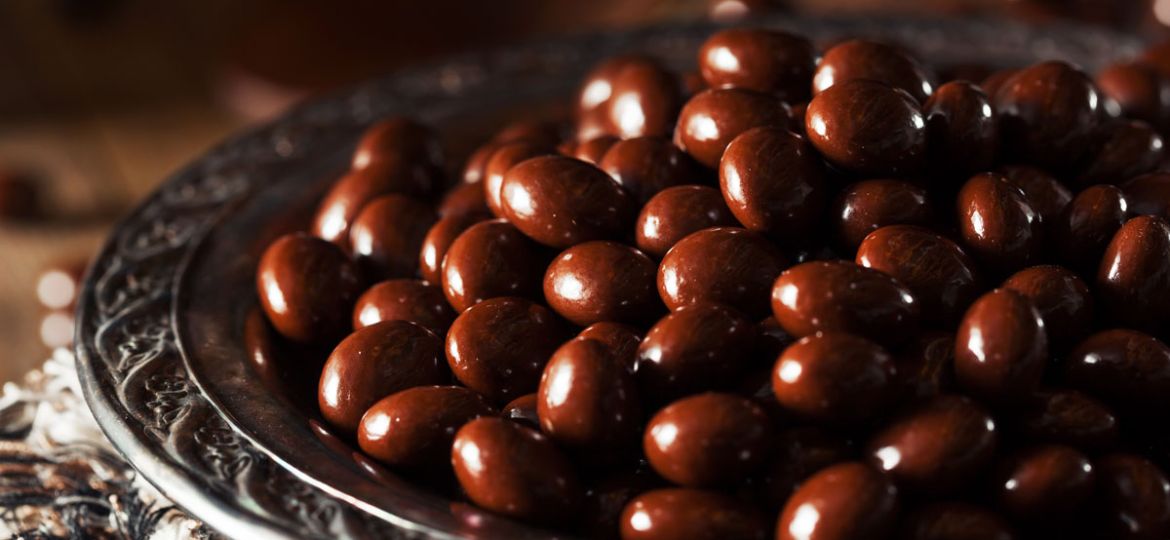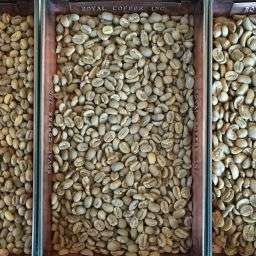
Chocolate-covered coffee beans have emerged as a favored snack among coffee and chocolate enthusiasts alike. This unique treat combines the rich, velvety texture of chocolate with the robust, aromatic flavor of coffee beans, offering a dual experience of sweetness and bitterness in every bite. Notably, this snack brings together caffeine from both components, providing a delightful energy boost.
Caffeine Benefits
Caffeine, a prominent compound in chocolate-covered coffee beans, is celebrated for its ability to enhance cognitive function, elevate mood, and boost metabolism.
According to Bean Poet, caffeine’s interaction with the brain not only sharpens mental alertness but also contributes to a more positive disposition and a potentially faster metabolic rate, laying the groundwork for improved daily function and well-being.
Antioxidants and Nutrients
Chocolate and coffee beans are both rich in antioxidants and nutrients, offering more than just a quick energy lift. These antioxidants play a crucial role in neutralizing harmful free radicals, while the nutrients present can aid in weight management, making these treats a surprisingly healthful choice when consumed in moderation.
Disease Prevention
The consumption of chocolate-covered coffee beans may also be linked to a lower risk of developing certain diseases. Livestrong notes studies indicating a correlation between regular coffee consumption and reduced risks of fatal prostate cancer, type 2 diabetes, and heart disease, suggesting that the benefits extend beyond immediate energy and mood enhancement.
Caffeine Overconsumption
While moderate caffeine intake is safe for most adults, excessive consumption can lead to adverse effects such as sleep disturbances, increased heart rate, and dehydration. Eldorado Coffee Roasters and Livestrong caution against consuming too many chocolate-covered coffee beans, as their high caffeine content could quickly surpass recommended daily limits.
Digestive Issues
The caffeine and other compounds in coffee beans can increase stomach acid, potentially leading to heartburn, nausea, and other digestive discomforts. As Bean Poet explains, these effects underscore the importance of moderation and mindful consumption to avoid gastrointestinal distress.
Nutritional Considerations
Despite their benefits, it’s crucial to consider the caloric, fat, and sugar content of chocolate-covered coffee beans. The Restaurant Authority points out that, depending on the chocolate used, these snacks can be high in calories and fat, which could impact overall nutritional balance and health if not consumed judiciously.
Moderation and Recommended Intake
When it comes to enjoying chocolate-covered coffee beans, moderation is key. Eldorado Coffee Roasters advises that due to the varied caffeine content in these snacks, it’s crucial to keep consumption within safe caffeine intake limits.
For most adults, up to 400 mg of caffeine daily is considered safe. Given that each chocolate-covered coffee bean contains approximately 5-10 mg of caffeine, limiting oneself to 40-80 beans per day can prevent overconsumption. However, individual tolerance to caffeine varies, so it’s essential to adjust intake based on personal sensitivity.
Storing Chocolate-Covered Coffee Beans
Proper storage of chocolate-covered coffee beans is essential for maintaining their freshness and extending their shelf life. Storing them in an airtight container in a cool, dark place.
This method can keep the beans fresh for up to two weeks, though they’re best enjoyed within a week for optimal taste and texture. For those looking to extend their longevity further, freezing is an option, albeit with a potential change in texture.
FAQs
Can Eating Coffee Beans Help with Weight Loss?
Caffeine’s role in boosting metabolism and enhancing fat burning has been recognized, suggesting that consuming coffee beans might aid in weight loss efforts. The caffeine in coffee beans can improve endurance during workouts and increase metabolic rate, which, in combination with a balanced diet and regular exercise, may contribute to weight loss.
How Long Do Chocolate-Covered Coffee Beans Last?
The shelf life of chocolate-covered coffee beans can extend up to 6 months when stored properly in an airtight container in a cool, dark place. For the best sensory experience, they should be consumed while fresh, ideally within a few weeks of purchase.
How Many Coffee Beans Can You Eat?
Considering the caffeine content in coffee beans, consuming up to 40-80 beans per day is within the safe limit for most people. However, individual tolerance varies, and it’s important to listen to your body’s response to caffeine.
Are There Different Ways to Enjoy Coffee Beans Besides Chocolate Covering?
Beyond chocolate-covered, there are inventive ways to enjoy coffee beans, such as incorporating them into coffee ice cream or creating espresso bark. These alternatives as delicious methods to savor the unique flavors of coffee beans, offering a variety for every palate.
Final Thoughts
Chocolate-covered coffee beans offer a delightful combination of flavors and textures, serving as a testament to the culinary versatility of coffee. By consuming these treats responsibly and exploring the various ways they can be enjoyed, aficionados can enhance their appreciation for this unique snack.









